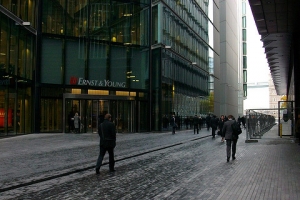Support migrant centric journalism today and donate

Scotland's economic growth was somewhat stunted in 2004, but 2005 should close the growth gap with the rest of the UK, with help from immigration. High numbers of immigrants came to Scotland in 2004, attracted by low real estate prices and high employment opportunities.
According to the Ernst & Young Scottish ITEM Club summer update, the healthier outlook from Scottish consumers compared with the rest of the UK is continuing to buoy the Scottish economy relative to the UK in the short term.
The UK economy as a whole is currently performing a rebalancing act, with consumer spending taking a breather compared with recent years. Exports and investment are sluggish, dragged by the weak economic conditions in Europe and high labour costs in the UK, and companies using their robust liquidity to address corporate debt and pension deficits, instead of new plant and products.
Scotland gained 26,000 migrants in 2004, a huge gain relative to past experience, with both domestic and international migration contributing to the upturn. Nearly 100,000 people arrived in Scotland between mid-2003 and mid-2004, offset by just over 70,000 who left. If the recent positive migration flows endure, even at a modest level, then at least one of the drags on economic dynamism will have been materially eased, said Dougie Adams, economic advisor to the Scottish ITEM Club.
Lower housing prices are one of the main attractors. Adams said: "Whilst the short-term outlook is for some catch-up in Scottish house prices, we expect the country's house prices to peak at just over 70 per cent of the UK level in 2005-6 compared to the last peak of over 90 per cent in the early 1990s. Lower house prices act as an attractor to inward migrants, many of whom bring capital and/or skills."
Another draw for migrants is employment. Adams said: "With jobs a easier to find in Scotland than in the rest of the UK - a consequence of a greater influence from the public sector than in the south-east - another incentive to out-migration has been muted in the recent past, while offering opportunities for in-migrants."





















